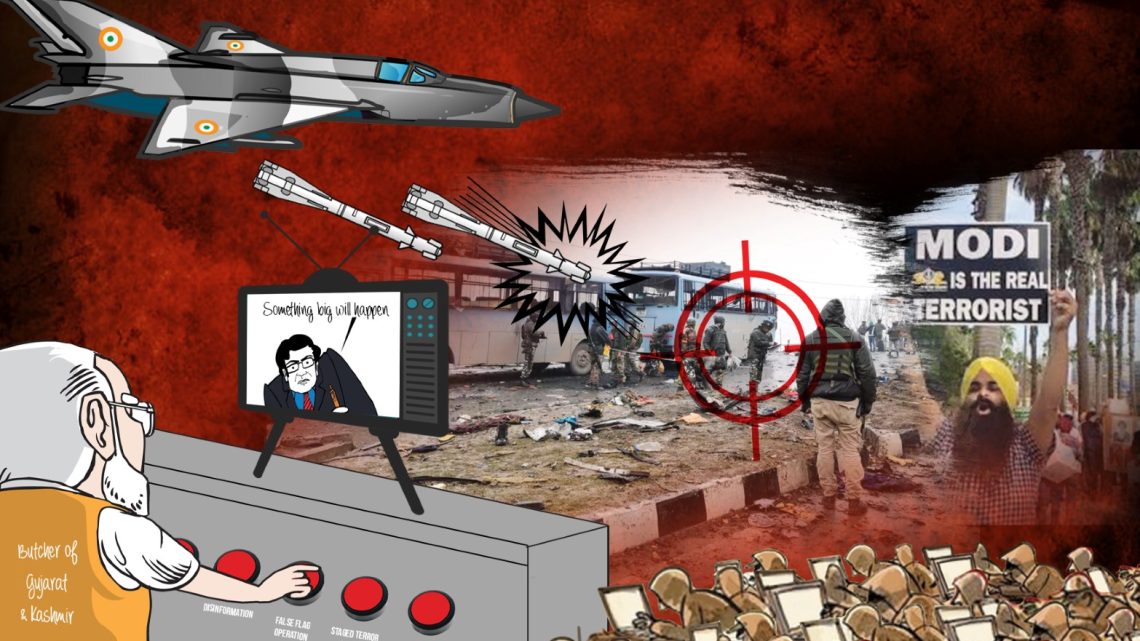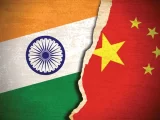
Reasi Attack: Analyzing India’s Alleged False Flag Operation
July 1, 2024A tragic incident in the Reasi district of Indian Illegally Occupied Jammu and Kashmir (IIOJK) saw a bus carrying Hindu pilgrims to the Shiv Khori temple plunge into a gorge, resulting in at least 10 deaths and numerous injuries. The response from Indian media and law enforcement agencies quickly pivoted to anti-Pakistan rhetoric, accusing Pakistan and its intelligence agency, ISI, of sponsoring terrorism in IIOJK. This reaction fits into a broader pattern of accusations aimed at painting Pakistan as a terror-sponsoring state, especially in light of recent encounters in Reasi, Kathua, and Doda.
The Hurriyat leadership, representing the Kashmiri resistance, denounced the attacks, attributing them to Indian agencies. They argue these incidents are part of a deliberate strategy to undermine the indigenous Kashmiri movement for self-determination. Historical precedents like the Singhpura and Vandhama attacks in Ganderbal support claims of India’s involvement in orchestrating violence to defame the freedom movement and divert global attention from the legitimate aspirations of the Kashmiri people.
Kashmiri leaders assert that these conspiracies will eventually be exposed and vow not to let the Modi regime’s extremist Hindutva ideology succeed. Unlike many other self-determination movements, the Kashmiri struggle against Indian occupation is deeply rooted in the local populace’s sentiments. This struggle bears striking similarities to the plight of Gazans, with Kashmiris enduring decades of oppression, torture, murder, rape, and unjust imprisonment.
India’s opposition parties have also criticized Prime Minister Narendra Modi’s claims of achieving peace and normalcy in IIOJK. They urge the government to cease misleading the Kashmiri people, arguing that the recent actions are a desperate attempt to divert attention from India’s human rights abuses and repressive policies in the region.
Indian authorities have again made unsubstantiated allegations against Pakistan following the recent killings. Accusations have been leveled at Indian security forces for staging encounters to receive medals or promotions, with local residents reportedly witnessing soldiers placing weapons on deceased individuals to fabricate evidence. This behavior aligns with the Bharatiya Janata Party’s (BJP) broader agenda of distorting historical facts to demonize Muslims and using armed forces and agencies as instruments of Hindutva ideology to suppress the Kashmiri freedom movement.
Modi’s administration has taken credit for high voter turnout, claiming it supports the abrogation of IIOJK’s special status and signals a return to normalcy. However, recent false flag operations in Reasi, Kathua, Doda, and other regions suggest escalating tensions and potential provocations designed to fuel anti-Pakistan sentiments. The Indian regime’s intentions to justify violence against Kashmiris and insinuate anti-Pakistan narratives through fabricated pretexts, such as the Reasi operation, are deeply concerning.
During a visit to the Line of Control (LoC), Pakistan’s Chief of Army Staff General Syed Asim Munir reiterated Pakistan’s stance on the Kashmiri struggle, aligned with relevant UN resolutions. He condemned India’s ongoing oppression and brutality, highlighting India’s post-election efforts to mask its aggression with false propaganda and provocations against Pakistan. He emphasized that manufacturing false flag operations has become a routine political tool for India.
Pakistan must appeal to the UN to curb India’s propagative statements and accusations. A coordinated response from domestic media platforms and think tanks is essential to counter India’s designs and protect Pakistan’s global reputation.

